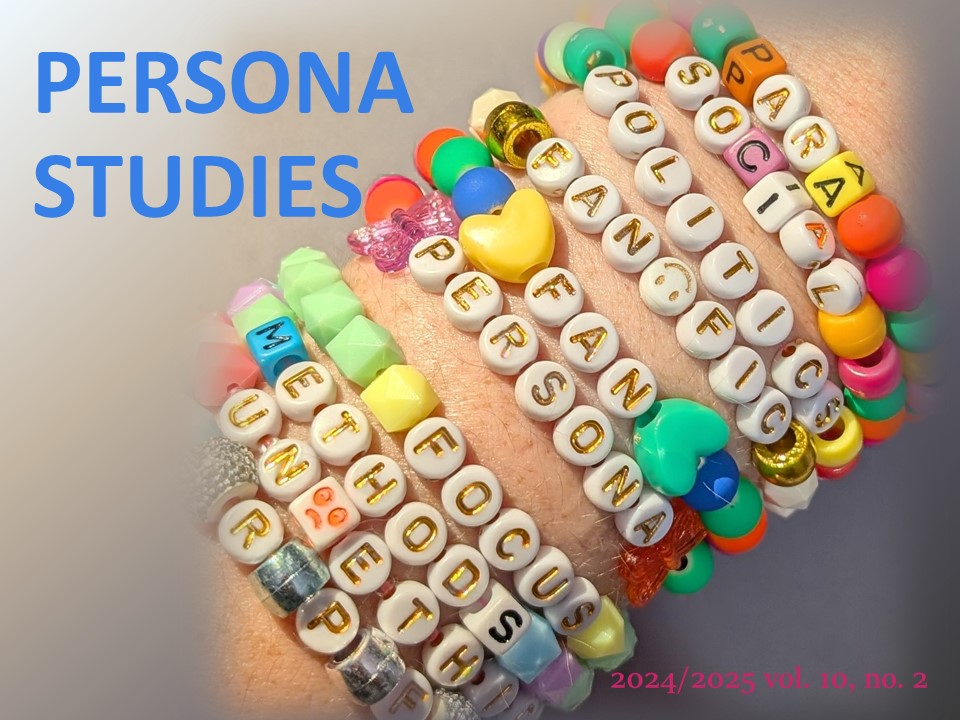Opening Doors
African Fan Personas and the Growth of Fan Studies Perspectives
DOI:
https://doi.org/10.21153/psj2024vol10no2art2061Keywords:
Fan Studies, Global South, Participation, Political Discourse, Online Discourse, African Fan StudiesAbstract
Traditionally, political affiliation has proven to be one of the most fruitful mechanisms to create division and derision amongst the voting masses. So polarising is the topic of politics that it has coined its own phrase – political divide. Drawing from insights in fan studies, this article explores toxic fan practices within political fandom, as highlighted by Petersen et al. (2023) and Le Clue (2024). It examines the participation and practices of online users/fans within South African politics by focusing on the use of #voestsekanc via X (formerly Twitter) as a case study.
In the constantly evolving landscapes of online communities, fan studies provides a lens to comprehend the complexity of participation and engagement, which can both empower and disempower individuals (Pearson 2010, p. 84). Despite this level of agency, the representation of African voices in fan studies is severely limited, which excludes the possibility of a comprehensive understanding of online dynamics within the African context. Therefore, this paper expands the scope of fan studies beyond Western perspectives and contributes to a more diverse scholarly discourse within this field of study.
Downloads
References
Akinwotu, E, & Bartlett, K 2024, In a historic election, South Africa's ANC loses majority for the first time, www.npr.org, Last Updated: 1 June 2024, retrieved 17 September 2024, <https://www.npr.org/2024/06/01/nx-s1-4987616/south-africa-election-results>.
Booth, P, Davisson, A, Hess, A, et al. 2019, Poaching politics: online communication during the 2016 US presidential election, Peter Lang Incorporated, New York.
Busse, K, & Hellekson, K (eds) 2006, Fan Fiction and Fan Communities in the Age of the Internet, McFarland & Company, Jefferson.
de Wildt, L, & Aupers, S 2024, ‘Participatory conspiracy culture: Believing, doubting and playing with conspiracy theories on Reddit’, Convergence, 30(1), pp. 329-346, https://doi.org/10.1177/13548565231178914
Dean, J 2017, ‘Politicising fandom’, The British Journal of Politics and International Relations, 19(2), pp. 408-424.
— 2019, ‘Sorted for Memes and Gifs: Visual Media and Everyday Digital Politics’, Political Studies Review, 17(3), pp. 255-266, https://doi.org/10.1177/1478929918807483
Driessen, S, Jones, B, & Litherland, B 2024, ‘From fan citizenship to ‘fanspiracies’: Politics and participatory cultures in times of crisis?’, Convergence, 30(1), pp. 304-312.
Duffett, M 2013, Understanding Fandom: An Introduction to the Study of Media Fan Culture, Bloomsbury Publishing USA.
Evans, A & Stasi, M 2014, ‘Desperately seeking methods: new directions in fan studies research’, Participations, 11(2), pp. 4-23.
Hills, M 2017, ‘Always-on fandom, waiting and bingeing: Psychoanalysis as an engagement with fans’ “infraordinary” experiences’, in J Gray, C Sandvoss, & C L Harrington (eds), The Routledge Companion to Media Fandom, Routledge, New York, pp. 18-26
Hinck, A 2019, Politics for the love of fandom: Fan-based citizenship in a digital world, Louisiana State University Press, Baton Rouge.
Jenkins, H 2009, Confronting the challenges of participatory culture: Media education for the 21st century, The MIT Press, Cambridge.
Kristensen, N N & Haastrup, H K 2018, ‘Cultural Critique: Re-negotiating cultural authority in digital media culture’, MedieKultur: Journal of media and communication research, 65, pp. 3-9.
Le Clue, N 2024, ‘The new normal: Online political fandom and the co-opting of morals’, Convergence, 30(1), pp. 347-357, https://doi.org/10.1177/13548565231190343
Le Clue, N & Vermaak-Griessel, J 2022 ‘Artificial Feminism: Fan Reaction to the Representation of Captain Marvel’, in S Gerrard & R Middlemost (eds), Gender and Action Films 2000 and Beyond, Emerald Publishing Limited, Bingley, pp. 73-85.
— 2023, ‘X-files till I DIE: Fan memory from the X-Philes’, in J Fenwick & D A Rodgers (eds), The Legacy of The X-Files. Bloomsbury Publishing USA, New York, pp. 207-218.
Marshall, P D, Moore, C & Barbour, K 2020, Persona Studies: An Introduction. Wiley Blackwell, Hoboken.
Mbalula, F 2020, ‘Good morning twittermantarians’, @mbalulafikile, Twitter, 10 August, retrieved 12 December 2022, <https://twitter.com/mbalulafikile/status/1292747148241645570?s=21>.
Mkentane, L 2022 ANC support is at 41%, opinion poll shows. www.businesslive.co.za. Last Updated: 9 November 2022, retrieved 13 December 2022, <https://www.businesslive.co.za/bd/national/2022-11-09-anc-support-is-at-41percent-opinion-poll-shows>.
Mkhabela, M 2022, The Enemy Within, Tafelberg, Cape Town.
Pearson, R 2010, ‘Fandom in the Digital Era’, Popular Communication, 8, pp. 84.
Petersen, L N, Reinhard, C D, Dannar, A, & Le Clue, N 2024, ‘New territories for fan studies: The insurrection, QAnon, Donald Trump and fandom’, Convergence, 30(1), pp. 313-328, https://doi.org/10.1177/13548565231174587
Reinhard, C D, Stanley, D, & Howell, L 2022, ‘Fans of Q: The stakes of QAnon’s functioning as political fandom’, American behavioral scientist 66(8), pp.1152-1172.
Proctor, W, Kies, B, Chin, B, Larsen, K, McCulloch, R, Pande, R & Stanfill, M 2018, ‘On toxic fan practices: A round-table’, Participations, 15(1), pp. 370-393.
Tewolde, A 2023, Operation Dudula’s xenophobia is a blight on South Africa, www.mg.co.za, Last Updated: 9 November 2023, retrieved on 30 September 2024, <https://mg.co.za/thought-leader/2023-11-09-operation-dudulas-xenophobia-is-a-blight-on-south-africa/>.
Downloads
Published
Issue
Section
License
Copyright (c) 2025 Natalie Le Clue

This work is licensed under a Creative Commons Attribution-NonCommercial 4.0 International License.







